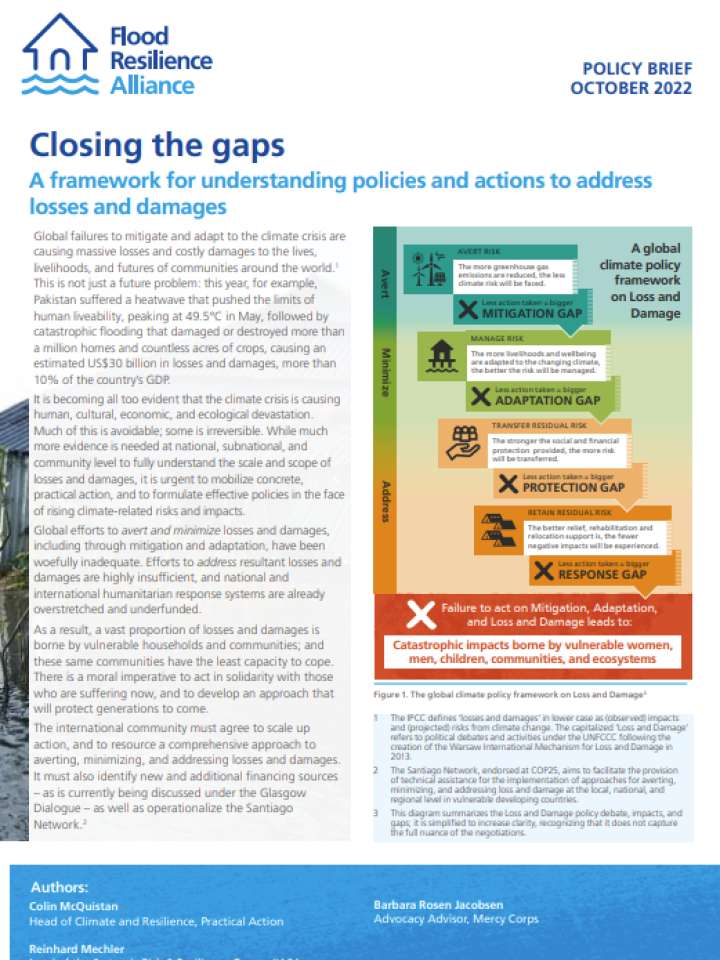Closing the gaps: A framework for understanding policies and actions to address losses and damages
Global failures to mitigate and adapt to the climate crisis are causing massive losses and costly damages to the lives, livelihoods, and futures of communities around the world. Efforts to address the issue have been highly insufficient, and national and international humanitarian response systems are already overstretched and underfunded. There is a moral imperative to act in solidarity with those who are suffering now, and to develop an approach that will protect generations to come. This policy brief from the Zurich Flood Resilience Alliances explains how we got to this point, and makes urgent recommendations outlining how the international community can to scale up action, and resource a comprehensive approach to averting, minimizing, and addressing losses and damages.
The policy recommendations include:
- Cover the adaptation gap: massive investments are needed now to prevent and manage avoidable losses and damages for the most vulnerable people. Adaptation investments reduce the irreversible harm that otherwise cannot be recovered through risk transfer or response mechanisms.
- Close the protection gap: major investments are needed in all climate-vulnerable countries to increase protection as well as boost adaptation to unavoidable risk.
- Address the response gap: new approaches are urgently required to ensure that the most vulnerable women, men, and children do not suffer the costs of the climate crisis where the means to adaptation are exhausted.
- Enhance policymaking and implementation capacity: systems need to be strengthened at all levels so that increased funding can be delivered effectively.
- More and better data: investment is required to build evidence on the scope of risks and impacts – economic, human, ecological – and on the effectiveness of the policies and programmes designed to minimize and address them.
- Scale up successful locally led response mechanisms
Explore further
